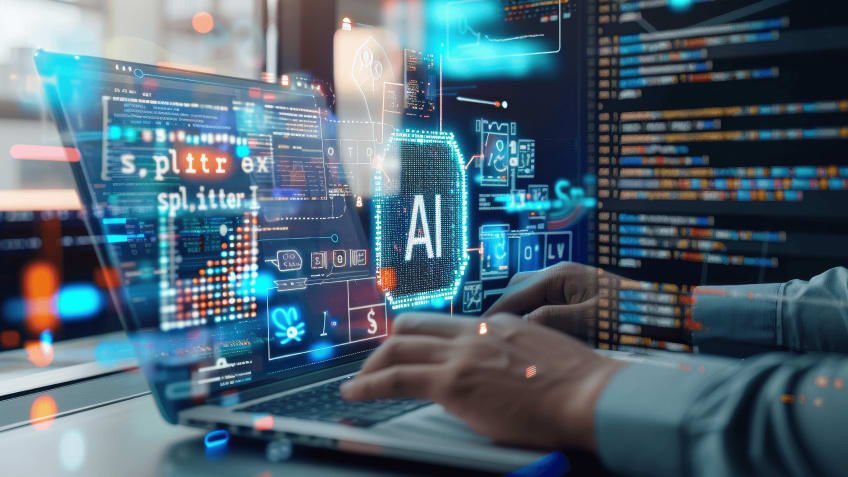The Evolution of AI Developer Tools in 2026: Transforming Software Development
As we approach 2026, the integration of artificial intelligence in developer tools is revolutionizing the software development landscape. Developers now have the luxury of leveraging AI tools that significantly reduce the tedious tasks traditionally associated with coding, debugging, and project management. These advancements are reshaping how software is developed, enabling faster project turnaround while enhancing overall productivity.
Why AI Developer Tools Matter
AI developer tools are crucial for several reasons. They facilitate greater efficiency in coding by automating repetitive tasks, which frees developers to focus on complex problem-solving and creative aspects of their work. As businesses strive to keep pace with technological advancements, AI tools help streamline operations, improve resource allocation, and foster innovation. By using AI, companies can create more intelligent applications that quickly adapt to changing user needs, thereby gaining a competitive edge.
Popular AI Development Tools Making Waves
The following AI tools are leading the charge toward more efficient coding practices:
1. Cursor
Cursor is a modern Integrated Development Environment (IDE) designed for simplicity and speed. What sets it apart is its integrated chat function, allowing developers to get real-time help without leaving the coding environment. Built on VSCodium, it maintains the familiar feel of Visual Studio Code, making transitions seamless for users.
Key Features:
- Real-time assistance via chat interface
- Automated code generation and debugging
- Familiar VS Code-like interface
2. PearAI
This open-source tool significantly eases the coding process with its inline code generation feature, delivering code suggestions as developers type. The chat function serves as a virtual assistant to resolve queries instantly, aiding in efficient problem-solving.
Key Features:
- Inline code suggestions for enhanced flow
- Instant chat support for coding queries
- Open-source framework for community contributions
3. Melty
Melty enhances collaboration through its versioning features, allowing developers to preview changes effectively. It simplifies commit message generation, ensuring clarity and professional communication within teams.
Key Features:
- Change previews for improved understanding
- AI-generated commit messages
- Chat functionality for quick issue resolution
4. Butterfish
Integrating ChatGPT with command-line interfaces, Butterfish streamlines generating shell commands and automating minor tasks. This allows developers to focus on core activities without breaking their workflow.
Key Features:
- Embedded ChatGPT for immediate support
- Simplified shell operations
- Enhanced productivity through basic automation
5. Shell Whiz
Shell Whiz is an intelligent command-line helper that demystifies shell operations. By generating commands and providing step-by-step explanations, it caters to both novices and seasoned developers.
Key Features:
- Quick command generation for various tasks
- Detailed explanations for better understanding
- Customizable to fit individual workflows
6. GitBrain
Version control becomes a breeze with GitBrain, which automates standard Git operations, such as breaking down code changes into smaller commits, generating summaries, and crafting commit messages.
Key Features:
- Automation of common Git operations
- Intelligent summaries and commit message generation
- Streamlined workflows to reduce errors
7. GitButler
Taking Git management further, GitButler allows for handling multiple branches at once. Its versatility in generating commit messages using AI accommodates various team styles and preferences.
Key Features:
- Management of multiple branches simultaneously
- Flexible commit message generation using AI
- Seamless integration with existing workflows
8. Replit Ghostwriter Chat
This AI-powered support feature offers proactive debugging and sophisticated autocomplete, greatly enhancing the coding experience within Replit.
Key Features:
- Problem detection before escalation
- Intelligent autocompletion features
9. Unblocked
Unblocked bridges source code with company knowledge bases, allowing developers to access critical documentation without leaving their IDEs. This holistic approach ensures that accurate information is always at hand during coding or debugging.
Key Features:
- Connections to GitHub, Jira, and Slack for context
- Available across multiple platforms
- File-specific insights for clarity
10. Sourcegraph Cody
Cody simplifies code refactoring and generates unit tests, automating essential tasks so developers can focus on feature expansion and program quality.
Key Features:
- Code refactoring and cleanup made easy
- Automatic unit test generation
- Integration capabilities with popular IDEs
11. Codeium
This adaptable AI coding assistant supports over 21 editors, offering chat-based help, autocomplete, and natural language search, making it a favored choice among developers who use varied tools.
Key Features:
- Compatibility with numerous editors and IDEs
- Natural language search for swift solutions
- Advanced autocomplete functionality
12. MutahunterAI
This tool detects and mitigates security vulnerabilities in code, significantly enhancing the developers’ ability to maintain secure coding practices while saving time.
Key Features:
- Vulnerability detection and automated testing
- Open-source, functional as a CLI or in CI/CD pipelines
Transformative Workflow Enhancements
Handling Repetitive Tasks
AI developer tools excel at automating repetitive tasks such as generating boilerplate code, cleaning code, and resolving common issues. This allows developers to devote their energy to more creative and intricate aspects of their projects.
Facilitating Collaboration
AI-powered chat functions and recommendation tools improve collaboration among teams, making it easy to share ideas and track changes. Automated commit messages and intelligent version conflict resolution further streamline teamwork.
Streamlining Information Access
These tools aggregate essential information from previous projects, documentation, and external resources, allowing developers to make informed decisions quickly and reducing the time spent searching for answers.
Supporting Continuous Learning
AI developer tools act as mentors, especially for those learning new languages or frameworks. They provide real-time feedback, examples, and coding insights, effectively turning the coding process into a learning experience.
In summary, AI developer tools are not just tools; they represent a significant shift in how software development is approached. They are paving the way for an innovative future in programming, enhancing productivity, collaboration, and code quality across the board. As these tools continue to evolve, they will undoubtedly play an imperative role in shaping the very fabric of software development.





